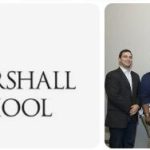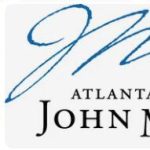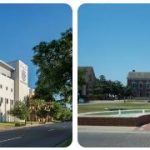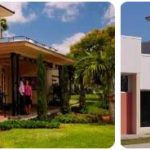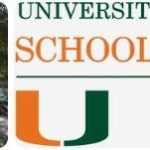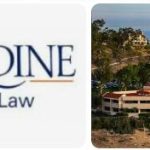St. John’s University School of Law was founded in 1925 as the first law school in Queens, New York. The school started with a small faculty and just over 20 students. Over the years, it has grown to become one of the largest law schools in the country, with more than 2,500 students and faculty members from all over the world. The school offers a wide range of legal education programs, including traditional J.D. programs as well as specialized Master’s degree programs such as Tax Law and International Law. The school also offers numerous certificate programs to meet the needs of today’s legal professionals. In addition to its academic offerings, St. John’s University School of Law also has a vibrant student life with numerous activities for students to explore and engage in outside of the classroom setting. These include student organizations such as moot court competitions, debate clubs, and legal clinics that provide free legal services for those in need throughout New York City. Furthermore, the school boasts an impressive alumni network that consists of prominent judges, lawyers, politicians and business executives from around the world who are able to provide invaluable advice and mentorship to current students at St. John’s University School of Law.
St. John’s University School of Law is located in the state of New York. As one of the leading law programs, St. John’s University School of Law has a high average LSAT score of 156-163 when recruiting new students. As a return, the median starting salary for law graduates reaches $130,000 per year. See the following table for detailed admissions information and career profiles of St. John’s University School of Law.
Admissions: St. John’s University
St. John’s University School of Law has an acceptance rate of 44%, with a total of 1,873 applicants and 829 admitted in the fall of 2019. The median LSAT score for accepted students was 154, while the median GPA was 3.41. The 75th percentile LSAT score was 159, and the 75th percentile GPA was 3.72. The school also offers a range of merit-based scholarships, with awards ranging from $5,000 to full tuition for three years. In addition to academic excellence, St. John’s University School of Law looks for qualities such as leadership potential, commitment to community service and involvement in extracurricular activities. Successful applicants will have demonstrated these qualities through meaningful experiences outside the classroom or through their professional lives. Furthermore, St. John’s University School of Law encourages prospective students to apply even if they don’t meet the minimum admission requirements; they may be considered for provisional admission if they can demonstrate that they have the potential to succeed in law school and beyond.
| Fall 2019 Admissions and Enrollment Statistics | |
|---|---|
| Total number of full- and part-time applicants | 4,036 |
| Total number of full- and part-time acceptances | 1,479 |
| Overall acceptance rate | 36.6% |
| Total number of full- and part-time first-year students enrolled | 315 |
| Number of full-time program applicants | 3,232 |
| Number of full-time program acceptances | 1,260 |
| Full-time acceptance rate | 39.0% |
| Number of first-year full-time students enrolled | 231 |
| Number of part-time program applicants | 804 |
| Number of part-time program acceptances | 219 |
| Part-time acceptance rate | 27.2% |
| Number of first-year part-time students enrolled | 84 |
| Fall 2019 GPA and LSAT Scores | |
| 25th-75th percentile GPA scores for all students | 3.16-3.73 |
| 25th-75th percentile LSAT scores for all students | 154-162 |
| 25th-75th percentile undergraduate GPA for full-time students | 3.16-3.7 |
| 25th-75th percentile LSAT scores for full-time students | 156-163 |
| 25th-75th percentile undergraduate GPA for part-time students | 3.12-3.77 |
| 25th-75th percentile LSAT scores for part-time students | 147-155 |
Careers: St. John’s University
| Bar Statistics (Winter and Summer 2018 administrations) | |
|---|---|
| State where the greatest number of first-time test takers took the bar | NY |
| School’s bar passage rate for first-time test takers | 90.6% |
| Statewide bar passage rate for first-time test takers | 80.7% |
| Class of 2018 Graduates | |
| Total graduates | 276 |
| Graduates employed at graduation | 77.9% |
| Graduates known to be employed nine months after graduation | 95.8% |
| Starting Salaries of 2018 Graduates Employed Full-time | |
| 25th percentile private sector starting salary | $70,000 |
| Median private sector starting salary | $130,000 |
| 75th percentile private sector starting salary | $160,000 |
| Percent in the private sector who reported salary information | 63% |
| Median public service starting salary | $53,000 |
| Areas of Legal Practice (Class of 2018) | |
| Percent employed in academia | 3.0% |
| Percent employed in business and industry | 15.0% |
| Percent employed in government | 17.0% |
| Percent employed in all judicial clerkships | 4.0% |
| Percent employed in law firms | 58.0% |
| Percent employed in public interest | 3.0% |
| Percent employed in an unknown field | 0.0% |
| Percent employed in a judicial clerkship by an Article III federal judge | 0.4% |
| 2018 Graduates Employment Location | |
| Graduates employed in-state | 90% |
| Graduates employed in foreign countries | 0% |
| Number of states where graduates are employed | 11 |
| New England (CT, ME, MA, NH, RI, VT) | 2.4% |
| Middle Atlantic (NY, NJ, PA) | 92.9% |
| East North Central (IL, IN, MI, OH, WI) | 0.4% |
| West North Central (IA, KS, MN, MO, NE, ND, SD) | 0.0% |
| South Atlantic (DE, DC, FL, GA, MD, NC, SC, VA, WV) | 2.4% |
| East South Central (AL, KY, MS, TN) | 0.0% |
| West South Central (AR, LA, OK, TX) | 0.4% |
| Pacific (AK, CA, HI, OR, WA) | 0.0% |
| Mountain (AZ, CO, ID, MT, NV, NM, UT, WY) | 0.4% |
| Employment location unknown | 1.0% |
| Career Services | |
| (Data appear as originally submitted by this school) | |
| Career services operations | The Office of Career Services assists students and alumni with career planning and development through individualized resume and cover-letter critiques, and informative programs and workshops. The office offers abundant opportunities to learn about career options and effective job searching techniques, and to network with attorneys in a variety of practice areas and legal settings. |
| Job Type | |
| Bar admission required or anticipated (e.g., attorney and corporate counsel positions, law clerks, judicial clerks) | 80.0% |
| J.D. preferred, law degree enhances position (e.g., corporate contracts administrator, alternative dispute resolution specialist, government regulatory analyst, FBI special agent) | 15.0% |
| Professional/other (jobs that require professional skills or training but for which a J.D. is neither preferred nor particularly applicable; e.g., accountant, teacher, business manager, nurse) | 5.0% |
| Nonprofessional/other (job that does not require any professional skills or training or is taken on a temporary basis and not viewed as part of a career path) | 1.0% |

